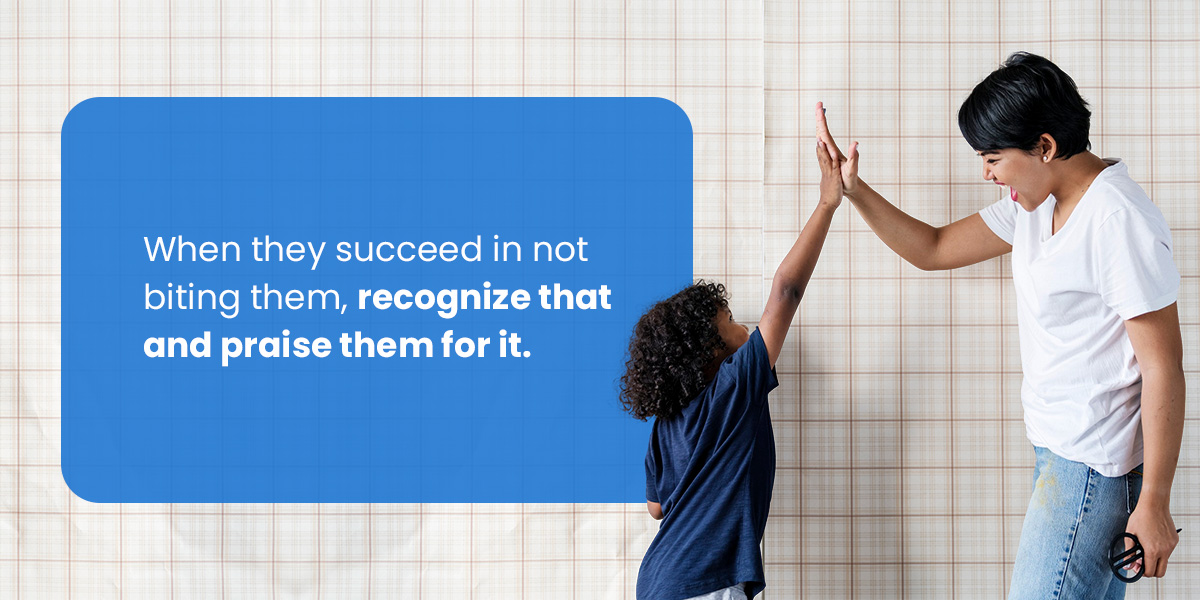Table of Contents
How to Stop Your Child From Biting Their Nails
Nail biting is the most prevalent habit that children pick up. As a parent, this habit can annoy you and could be problematic for your child’s health. The good news is that this habit goes away on its own after some time. But if it doesn’t, here are some tips for how to stop kids from biting their nails.
Why Do Kids Bite Their Nails?
Nail biting is often a nervous habit, just like hair twisting, teeth grinding and nose picking. People do it for different reasons. Here are some of the reasons why your child may bite their nails:
- They are stressed or bored: If your child is nail-biting, they probably had an experience that stressed them and may be trying to relieve it, just like you would try to do by going for a long drive or walk. They could also be trying to occupy themselves when boredom strikes, especially if it happens when they don’t have access to other outlets, like during class.
- Their nails aren’t properly trimmed: Some kids like short nails more than longer nails. They may also bite their nails instead of filing or clipping them.
- It’s become a habit: Over time, nail biting in children can develop as a self-soothing behavior. It might comfort them and make them feel calm.
Is Nail Biting a Sign of Anxiety?
Several mental health conditions have been linked to nail biting, such as attention deficit hyperactivity disorder, ADHD, Tourette syndrome, OCD and some other anxiety disorders. Nail biting in childhood often goes away on its own — but if your child bites their nails consistently and compulsively, it’s a good idea to consult a professional to check if they have an underlying condition that needs treatment.
Behavioral Strategies for Stopping Nail Biting
Some approaches can help ease your child away from biting their nails. Here are a few:
Habit Reversal Training
Habit reversal training is a type of therapy that gives people the coping mechanisms they need to manage body-focused repetitive behaviors, such as nail biting.
An effective way to implement this technique at home is by increasing your child’s awareness. Sometimes, children who bite their nails are completely unaware of what they are doing. To help your child recognize their habit, kindly let them know when you see them biting their nails. Agree on a subtle signal, such as a light tap, that you may use in public so they won’t feel embarrassed when you point it out.
Distraction Techniques
When your child feels the impulse to bite, give them something to do to keep their hands busy. Examples include coloring, drawing or building forts. You can also distract them from the habit by taking them to the park, working on a puzzle together or cooking or baking together.
Some tools and toys that can help include:
- A worry stone
- Rubber balls
- Putty or clay
- A soft piece of fabric
Parenting Techniques to Curb Nail Biting
You can help your child quit biting their nails with these parenting strategies:
Positive Reinforcement

Any habit is challenging to kick, so treat your child with love and encourage them not to feel bad. If you get impatient with your child for biting their nails, it could make them anxious and self-conscious. Just like you made them understand the importance of washing their hands, make them understand the consequences of biting their nails and the benefits of stopping.
When they succeed in not biting them, recognize that and praise them for it. Give your child a tiny incentive for each day they avoid biting their nails. The reward doesn’t need to be big. It can be a sticker or a trip to the movies.
Avoid negative reinforcements — methods like bitter-tasting nail polish can be really uncomfortable and make your child feel like they’re receiving punishment. It may have consequences such as putting them off from their favorite foods that require them to put their fingers in their mouth.
Setting Boundaries and Consistency
Setting boundaries and consistency involves following through on what you say. It means resisting the urge to be complacent and giving your child second or third chances every time they bite their nails because you’re tired of reminding them every time. If they bite their nails and you don’t remind them of the consequences, it shows them that it’s not that serious and they can keep doing it.
Consistency enables limits and expectations to be set, which helps children learn how to control their behavior. When children understand the expectations and consequences, they actively choose whether to behave appropriately or face the consequences. Children are more likely to adapt their behavior if you respond consistently to both positive and negative behaviors.
Emotional and Anxiety Reduction Strategies
Helping your child alleviate any emotional discomfort could help reduce nail biting.
Emotional Regulation
Instead of just telling your child to stop nail biting, try to get to the bottom of it by addressing the cause. Teach your children to recognize and name their emotions. Find opportunities to discuss their feelings when they’re calm. Talk about some ways they can control their nail biting. For example, if they found themselves biting their nails, talk about the different choices they could have made. This can help them develop problem-solving skills.
Once you discuss potential options, rehearse how they can be applied in the real world. Consistency is key for kids who struggle to learn emotional regulation. Work together with your child and involve them when planning a coordinated approach to handling their nail biting.
Self-Soothing Methods
Seeing how the adults around them handle stress is one way that kids pick up the skill of self-soothing. For example, when you squeeze a stress ball instead of nail-biting, you can communicate that to your child and ask them to join you.
Deep breathing exercises can also help ease anxiousness, and they’re easy to teach. Physical exercise is another effective technique to release tense energy. Urge your child to take walks, run or whatever works best for them in the moment.
You can also encourage your child to lean into their hobbies, like listening to music or creating art.
When Nail Biting Doesn’t Stop
Learning how to stop nail biting in children can be challenging. However, if you use some of the above strategies, your child will have an easier time breaking it. If these steps don’t help, you might want to consider behavioral therapy.
Behavioral therapy can help your child overcome any embarrassment and negative emotions that commonly accompany or cause nail biting. It can also help raise awareness of their triggers and urges.
At Courageous Kids Counseling, we use behavioral therapy and other solutions to help children with anxiety, depression and other difficulties. If you need the help of a specialist to figure out the root cause of your child’s nail-biting, contact us today or book a free consultation.



